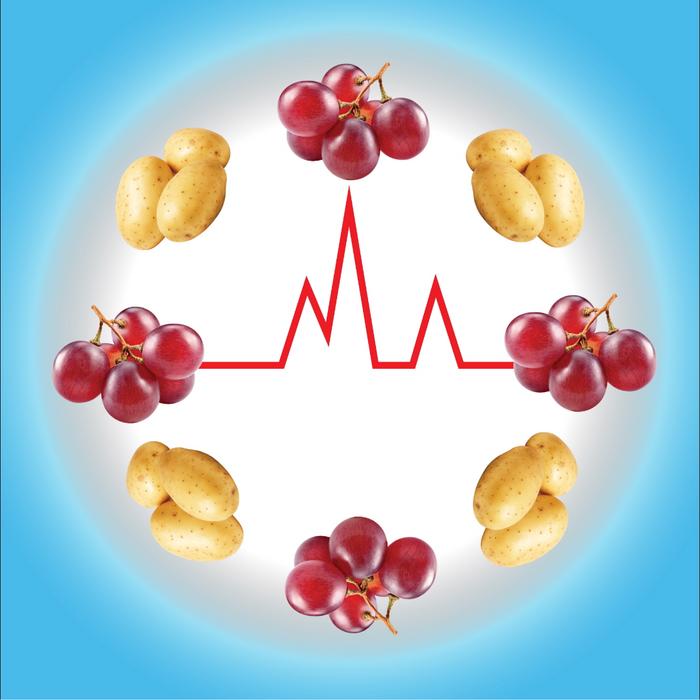A groundbreaking study from Stanford Medicine introduces a transformative perspective on how individual metabolic health drives blood glucose responses to carbohydrate intake, highlighting the potential for personalized dietary recommendations in diabetes prevention and management. The research elucidates that the conventional one-size-fits-all dietary guidelines, such as those recommended by the American Diabetes Association, fail to account for the nuanced variations in metabolic dysfunctions that influence glycemic control. By dissecting the metabolic subtypes within prediabetic populations, this study paves the way for tailored nutritional strategies that could revolutionize outcomes in metabolic health care.
The research, soon to be published in Nature Medicine, was co-led by Michael Snyder, PhD, and Tracey McLaughlin, MD, with significant contributions from a multidisciplinary team blending genetics, endocrinology, and biomedical data science. Their observational study involved 55 adult participants, carefully selected without prior Type 2 diabetes diagnosis. These individuals underwent comprehensive metabolic phenotyping, including insulin resistance evaluation and beta cell function testing, paired with advanced multi-omics analyses incorporating lipidomics, metabolomics, liver function assessments, and gut microbiome profiling.
Central to the investigation was the deployment of continuous glucose monitoring systems, which captured dynamic blood sugar fluctuations in response to a controlled and repeated intake of seven carbohydrate-rich foods. The tested foods—ranging from jasmine rice and buttermilk bread to shredded potatoes, pasta, canned black beans, grapes, and a berry mixture—were consumed in standardized portions by participants in a fasted state to ensure baseline comparability. Each food item was ingested twice by every subject, enabling robust within-individual and between-group comparisons over three-hour postprandial windows.
The findings disrupt the simplistic categorization of carbohydrates based on glycemic index or load. Notably, certain starchy foods provoked heterogeneous glucose responses contingent upon the individual’s underlying metabolic derangements. For example, individuals with insulin resistance displayed pronounced glycemic spikes following pasta consumption, whereas those with both insulin resistance and beta cell dysfunction exhibited highest glucose excursions after potato ingestion. Conversely, glucose responses to rice or grapes were elevated across participants, independent of metabolic health status, suggesting some carbohydrate sources exert universal impacts on glycemia.
Delving deeper, multi-omics profiling illuminated metabolic signatures correlating with these response patterns. Participants exhibiting potato-induced glucose spikes harbored elevated levels of circulating triglycerides, fatty acids, and other metabolites characteristic of insulin resistance phenotypes. Intriguingly, glycemic elevations after black bean consumption aligned with alterations in histidine and ketogenic metabolism pathways, indicating shifts toward increased fat utilization as an energy substrate. Moreover, those who experienced blood sugar surges post-bread consumption were more frequently diagnosed with hypertension, underscoring the metabolic interconnectivity between carbohydrate intolerance and cardiovascular risk factors.
A compelling revelation emerged in the form of the potato-to-grape glucose spike ratio as a potential biomarker for insulin resistance. Since grapes induced glucose elevations uniformly, contrasting their response with the variable potato response enabled differentiation of metabolic impairments. This ratio—if validated in larger populations—could furnish clinicians with a practical and non-invasive proxy to detect insulin resistance, a condition currently difficult to diagnose without specialized testing yet critically amenable to lifestyle and pharmacological interventions aimed at diabetes risk reduction.
Further exploring dietary modulation, the researchers tested whether pre-loading meals with macronutrients such as fiber, protein, or fat could mitigate carbohydrate-induced glucose spikes. In metabolically healthy participants, ingestion of pea fiber or egg white protein prior to rice consumption effectively blunted postprandial glycemic excursions, while consuming fat (in the form of crème fraîche) delayed the peak glucose concentration. However, these mitigating effects were absent in participants exhibiting insulin resistance or beta cell dysfunction, indicating that the pathophysiology of metabolic disease attenuates the efficacy of such nutritional strategies—a finding with significant clinical implications for therapeutic meal planning.
This study challenges prevailing paradigms by demonstrating that metabolic dysfunctions not only influence the magnitude but also the temporal dynamics of postprandial glucose metabolism, highlighting personalized nutrition as a critical frontier in metabolic disease management. Michael Snyder advocates for pragmatic dietary ordering, suggesting that consuming protein- or fat-rich foods prior to carbohydrates (like eating a salad or hamburger before fries) may prove beneficial, even as the optimal macronutrient sequence remains to be conclusively identified.
The research integrates collaborations across institutions including Johns Hopkins University, Ultima Genomics, Amrita Vishwa Vidyapeetham University, the University of Bergen, and Cairo University, reflecting the global urgency in tackling diabetes through precision medicine. Financial support from a consortium of prestigious funding bodies such as the National Institutes of Health, the American Diabetes Association, and the Stanford Diabetes Center underscores both the significance and anticipated impact of these findings.
Beyond implications for diabetes care, this study also enriches the broader understanding of human metabolic diversity, offering insights into how genetic, environmental, and microbial factors intertwine to shape individual responses to dietary carbohydrates. The meticulous multi-omics approach champions a holistic perspective necessary for decoding complex metabolic networks and tailoring interventions that transcend simplistic dietary prescriptions.
In summary, this pioneering research elucidates the critical heterogeneity in glycemic responses based on individual metabolic health, heralding a new era where carbohydrate recommendations may be customized rather than generalized. The study not only underscores the physiological underpinnings of carbohydrate metabolism in health and disease but also identifies actionable biomarkers and interventions that bring personalized nutrition within reach for millions at risk of diabetes and metabolic disorders.
Subject of Research: People
Article Title: Individual variations in glycemic responses to carbohydrates and underlying metabolic physiology
News Publication Date: June 4, 2025
Web References:
References:
- Snyder, M., McLaughlin, T., et al. (2025). Individual variations in glycemic responses to carbohydrates and underlying metabolic physiology. Nature Medicine. DOI: 10.1038/s41591-025-03719-2
Image Credits: Emily Moskal/Stanford Medicine
Keywords: Type 2 diabetes, Metabolic disorders, Blood glucose variability, Insulin resistance, Beta cell dysfunction, Personalized nutrition, Continuous glucose monitoring, Multi-omics profiling, Glycemic response, Starchy foods, Biomarkers, Dietary interventions




